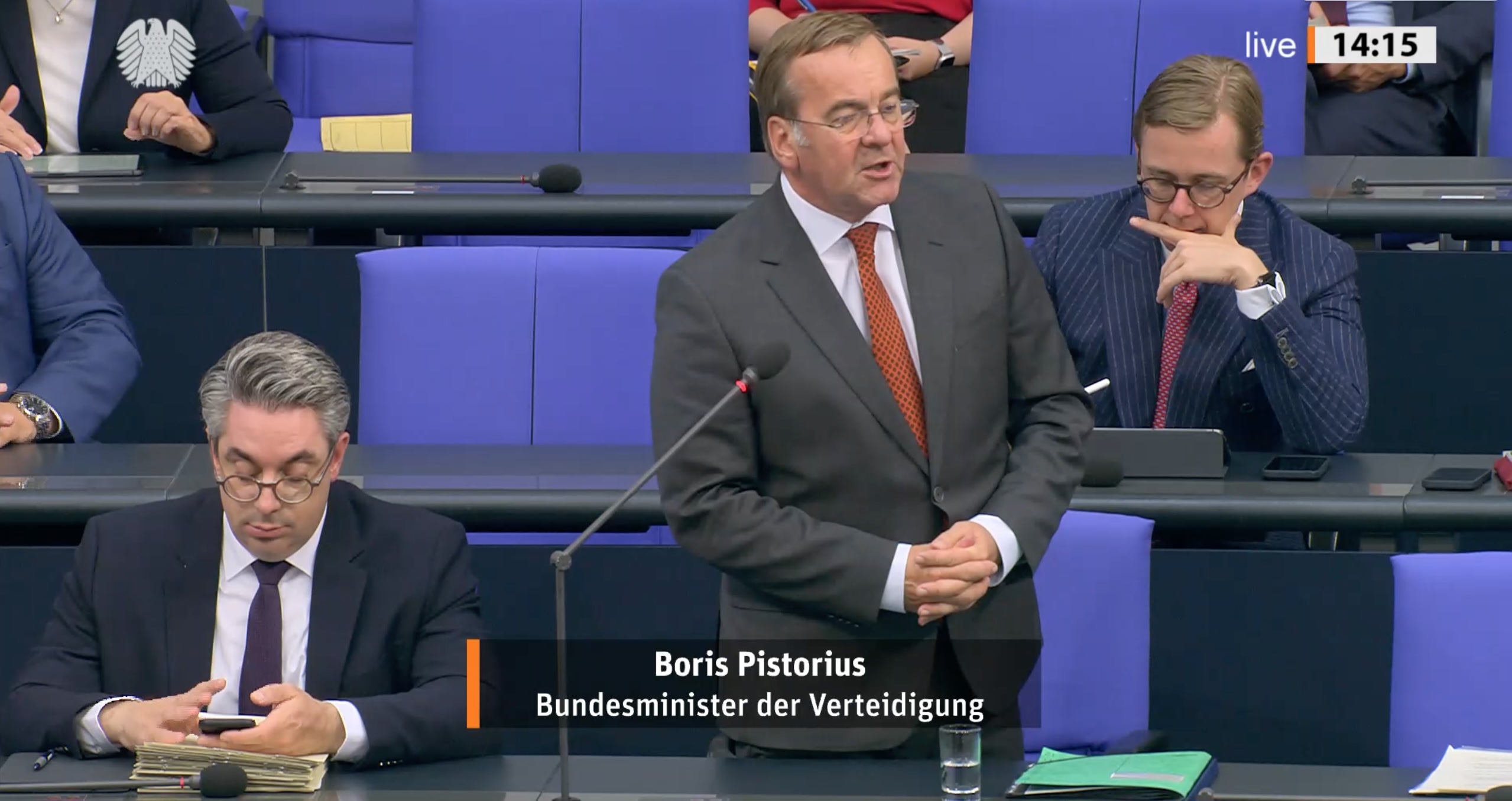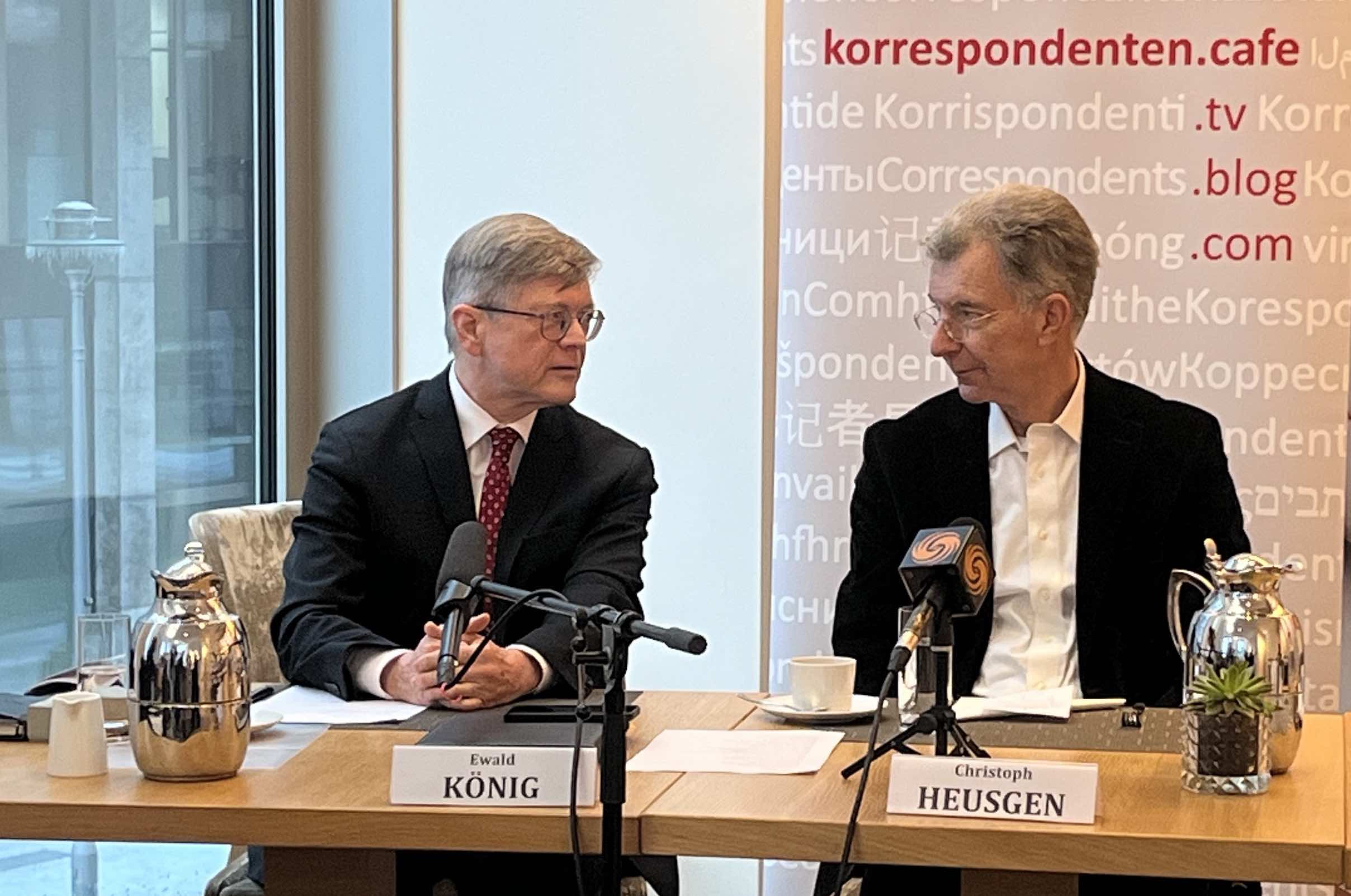diplo.news
Pistorius assumes deliberate Russian provocation

Federal Defense Minister Boris Pistorius (SPD) believes that last night's drone attacks on Polish territory were deliberate provocations by Russia. According to Poland's Prime Minister Donald Tusk, there are 19 Shahid drones or drones of the same design, which were apparently launched from Belarusian territory. “There is definitely no reason to suspect that this was a course correction error or anything of the sort,” Pistorius said Wednesday during a government question period in the German Bundestag. It was quite obvious that the drones were specifically set on course and equipped with ammunition. The minister stressed that this is part of a constant threat from Russian forces, which is expressed in provocations in Baltic airspace and in the Baltic Sea - above and under water - as well as in hybrid attacks in Central Europe.
Germany is cooperating with Poland in consultations under Article 4 of the NATO Treaty (in the event of violations of territorial integrity) and supports clear action to send a signal. When asked whether the German government was doing enough to make it clear to Moscow that hostile attacks such as cutting cables in the Baltic Sea, drone flights over Bundeswehr barracks, cyberattacks, or a contract killing in Tiergarten would not be accepted, Pistorius answered in the affirmative. This included the commitment to increase the defense budget vis-à-vis NATO to 3.5 or 5 percent of GDP in the coming years, to accelerate procurement, and to increase the personnel of the Bundeswehr. In addition, work was being done to strengthen the resilience of German society and industry, as well as to raise awareness of the threats, which unfortunately also needed to be strengthened.
Germany is now Ukraine's largest supporter in the worldwide. “The addition after the US can now be omitted.” Support will amount to around nine billion euros next year, slightly less than this year. Joint ventures between the German/European defense industry and Ukrainian industry for joint production in Ukraine, Germany and Europe are decisive in the area of Ukraine's air defense. This is intended to utilize the underutilized capacities of the Ukrainian defense industries. Strengthening air defense remains a primary task. The volume of material from Bundeswehr stocks that is being handed over to Ukraine continues to decline. At the same time, the recovery of what had already been delivered is being accelerated in order to close the gaps that have arisen as quickly as possible.
In response to a question from The Left Party about how the federal government is dealing with the highly sensitive issue of data collection in the Ukraine war, in which the private US data analysis company Palantir is also involved, Pistorius replied that, to his knowledge, the federal government is not directly using the software provided by Palantir and that he personally has an ambivalent relationship with this company. But of course, it was making use of the daily events on the battlefield in Ukraine and learning from the experiences of the armed forces and the course of the war, both in terms of digital and physical insights. Incidentally, the German government had always been committed to not using fully autonomous, AI-supported technologies, and that remained the case. According to Donata Vogtschmidt, a member of the Left Party, around two million hours of combat and sensor data have been collected for training AI systems since Russia's invasion of Ukraine in February 2022. gd




